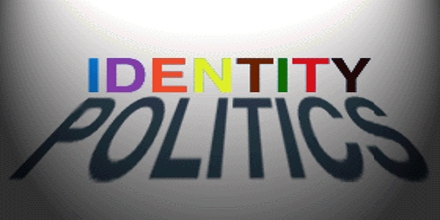A really thought provoking article from Grahame Archer on the subject of community and identity has been published on the Conservative Home website. In this article Mr Archer takes aim at identity politics and shows both the stupidity and danger of indentity politics to British society. Mr Archer states that we all have many overlapping identities, in his case vegetarian, gay and Tory and identity politics ignores that inconvenient fact that these overlapping identities exist.
Mr Archer was taking his inspiration for this piece from an incident in Australia when the writer Lional Shriver was speaking on the subject of writing fiction and stepping into another persons shoes in order to do so. Ms Shriver during her speech at a writers festival attacked the concept of ‘cultural appropriation’. This attack on this concept angered a member of the audience, Yassmin Abdel-Magied a sometime Guardian writer, so much that she walked out. A media storm erupted over Ms Shriver’s and Ms Abdel Magied’s actions and words but this incident has encouraged those like Mr Archer, a statistician and former winner of the Orwell Prize for political blogging, to examine various aspects of identity politics.
Here’s a short excerpt from the Grahame Archer article and it’s well worth following the link below and reading it in full.
Grahame Archer said:
Identity politics in literature is bad enough. What’s worse is that it’s taking hold of a growing segment of the British Left, desperate to fill its post-Blair not-socialist gap. Here is how it works.
First, ignore the (observable) fact that every human being alive is in possession of a near-as-dammit infinite number of overlapping identities (list your own, then stop when you run out of patience.)
Secondly, and ignoring this inconvenient fact, insist that every human can be deconvolved into a finite number of different categories, by applying some sort of sociological Fourier transform. (Graeme is 50 per cent gay and 15 per cent Tory and five per cent vegetarian and so on.)
Thirdly – and here is where we move from the realm of sociological guff, and start harming ourselves – construct a mainstream politics which prioritises these (fictional – the irony!) mono-identities, and devises policies specific for each one’s “needs”. A politics of “communities”, by definition plural, by definition non-overlapping.
Politics is about choosing, so a ranking of the identities, and their various intersections, must be imposed. Gay > Straight, for example, but Left-Straight > Tory-Gay, which explains why straight Labour activists can’t see that turning up at Pride marches wearing “Never kissed a Tory” teeshirts is a moral obscenity: their place in the hegemony – the rank of their primary identity – vis-a-vis Tories excuses it.
This isn’t uniquely a Left-wing pathology. There is a spectre of a mote in a type of Right-wing eye too; that’s why Andrea Leadsom thought it fine to do all that “As a mother” thing: picking a single aspect of her identity and using it to rank the leadership potential of everyone else on the planet. Mothers > Non-mothers.
Such a politics goes wrong because we are not “deconvolvable”. We are convoluted, by design and by our enormous good luck.
We don’t live in the frequency domain, where I’m “50 per cent gay, 20 per cent Scottish, 10 per cent Tory”, and so on. I am 100 per cent all of these things – and a near infinite number more such things – all at the same time.
A politics which pretends otherwise is doomed to failure, not least because (have you noticed?) it discourages empathy: not-You is not only unknowable, either in literature, or in political discourse; not-You is forbidden, because You > not-You.
At best, identity politics produces earnest young women like Abdel-Magied, who waste their intellectual potential by finding other gifted women to be angry about. Over nothing, Yasmin. You stormed out over nothing.
At the mid-point of the scale, it gives us Ken Livingstone, who knew perfectly well what he was doing when he embraced Qaradawi or drivelled on about Hitler. Indeed, the thought that should make your blood run cold isn’t really what he said or did. It is that, from the perspective of an identity politician, Livingstone was being entirely rational: there are more Islamic voters than Jewish or gay ones, and that reductive frequency-dimensionality is the only world Livingstone inhabits. Islam > Jew/gay.
At its worst, of course, identity politics gives us Rotherham, and Tower Hamlets, Trojan Horse schooling and gender-segregated Labour Party meetings. It gives us the murders of Asad Shah and Jalal Uddin.
And because working-class people – those who didn’t get to grammar school – can be clumsy, sometimes, in the way they express concern about immigration, identity politics provided an easy way for middle-class liberals to avoid even having to think about the topic. Racists. (There is a sign that – Brexit, Trump – liberals are starting to wake up to the limitation of their approach.)
How to fight this? First, recognise that words matter; words are both the weapons in this war and the bricks to build something better. I’ve just spent a year in the Department For Communities & Local Government. Good people, wrong name. We need a Department Of Community, not “For Communities”, and we need a politics, not of identity, but of values.
Had we a politics of values, for example, universities could stop tying themselves in knots, defending the campus presence of groups inimical to freedom. “The entire point of a university is intellectual rigour and freedom, so if your society is opposed to those values, then sorry: no room at this inn.” That isn’t a contradiction. It’s rejecting the calculus of identity politics. Our values: Freedom > Non-freedom, regardless of your “identity”.
You can have identity politics, or you can have a good – cohesive – society. You certainly cannot have both.
Read the rest of this first-class deconstruction of the concept of identity politics via the link below
http://www.conservativehome.com/thecolumnists/2016/09/graeme-archer-community-and-identity.html





